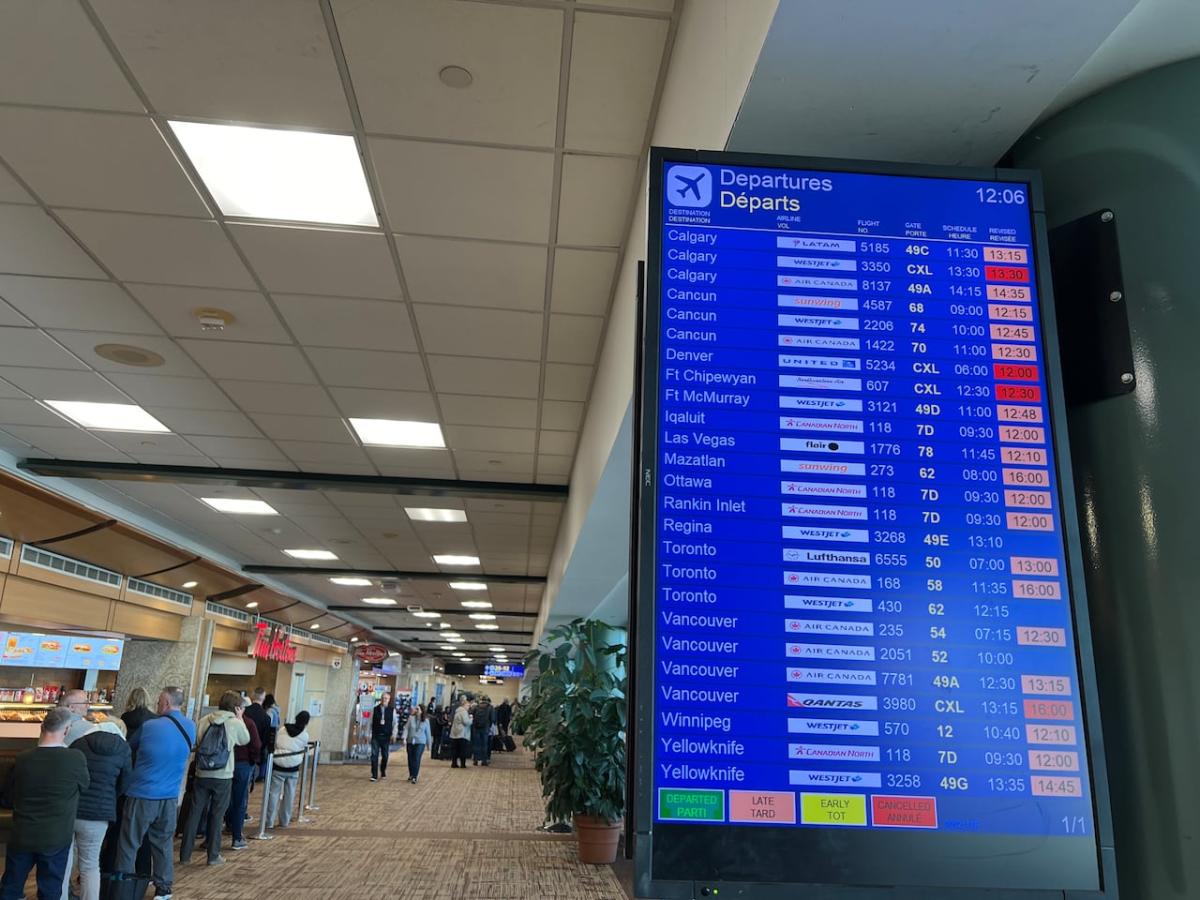


The Supreme Court confirms that airlines can be required to compensate passengers for certain international flight disruptions ruling that Canada’s passenger protection regulations do not violate international law.
In a unanimous ruling, all nine justices dismissed an appeal filed by two airline associations and a group of air carriers that serve Canada and other international airports.
The airlines had argued that Canada’s Air Passenger Protection Regulations brought in in 2019 violated the Montreal Convention, an international treaty that came into force in Canada in 2001.
The Air Passenger Protection Regulations impose obligations on airlines in cases of flight delays, cancellations, boarding denial and lost or damaged luggage.
Those obligations require airlines explain the reasons for delays and cancellations and provide certain free services — such as food, drink and access to washrooms — if a flight is delayed on the tarmac if the disruption is within a carrier’s control and was not required for safety purposes.
The regulations also require airlines refund baggage fees in cases where luggage is permanently lost or damaged, on top of any damages required under the Montreal Convention.
Article 29 of the convention says “any action for damages” against an airline is “subject to the conditions and such limits of liability as are set out” in the convention.
The airlines argued that Article 29 requires that the regime for how compensation is paid to passengers is exclusively regulated by the convention, and that the 2019 passenger protection provisions violate that exclusivity.
The question considered by the court was whether the compensation regime under the 2019 regulations that required airlines to compensate passengers with fixed financial rewards can exist alongside the Montreal Convention.
The case only considers compensation for international flights to and from Canada, not domestic flights.
Convention, regulations can co-exist, ruling says
In the decision, Justice Malcolm Rowe said the word “action” in the line “any action for damages” contained in the Montreal Convention refers to a court proceeding brought forward that can result in a judgment of damages based on a specific case.
“Damages awards are ‘individualized’ in that they seek to compensate the plaintiff for the loss suffered as a result of an injury caused by another,” Rowe wrote.
“An action for damages is distinct from standardized compensation which … may be owed identically to all claimants irrespective of the harm (if any) they have suffered.”
Rowe said because Canada’s Air Passenger Protection Regulations deal with standardized compensation, they are best understood as “a consumer protection scheme” — where passengers don’t need not to show they were harmed in order to be compensated a set amount.
“The Regulations do not tie compensation to harm and inconvenience; rather they mandate compensation for delay, cancellation or denial of boarding based on the time by which a passenger’s arrival at their ultimate destination is delayed,” Rowe said.
“As long as the disruption in question occurred for a reason within the carrier’s control and was not required for safety purposes, the compensation is fixed.”